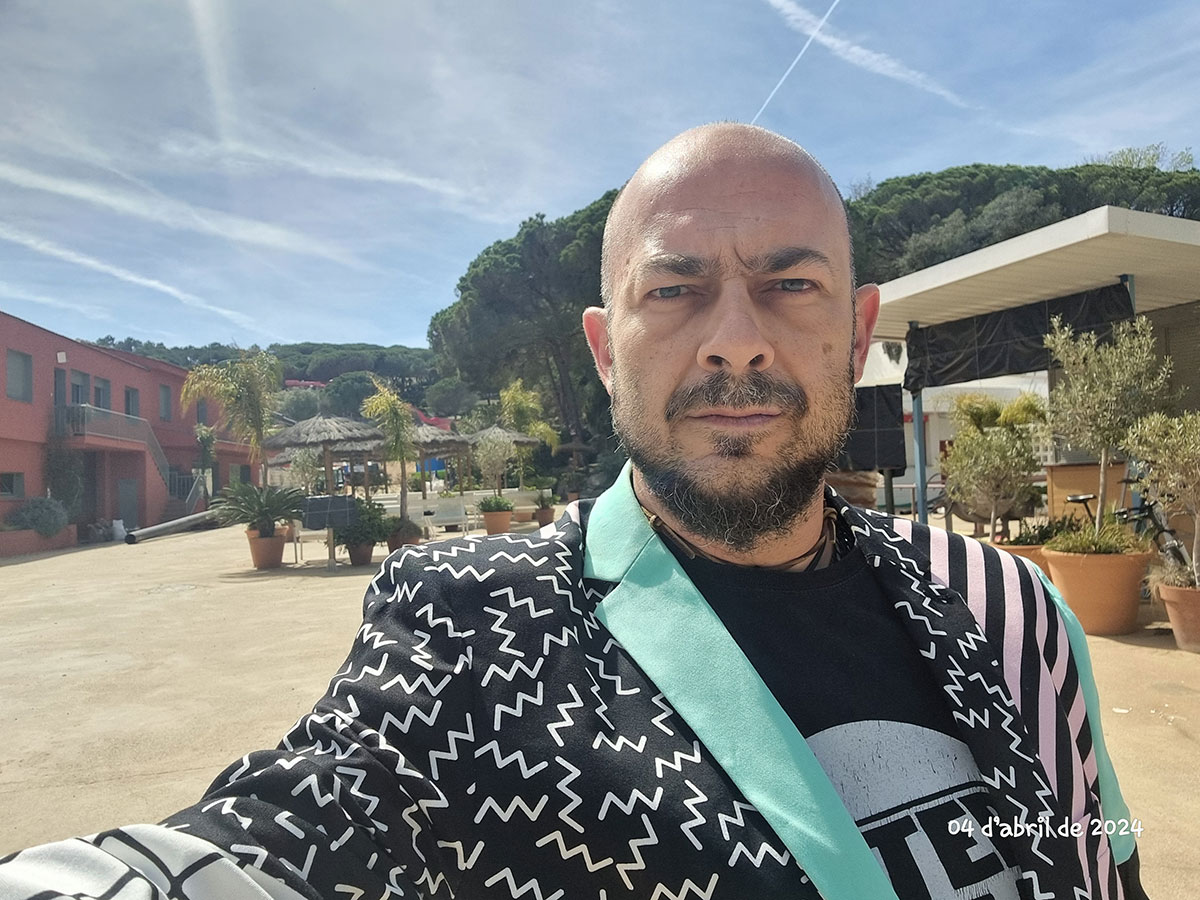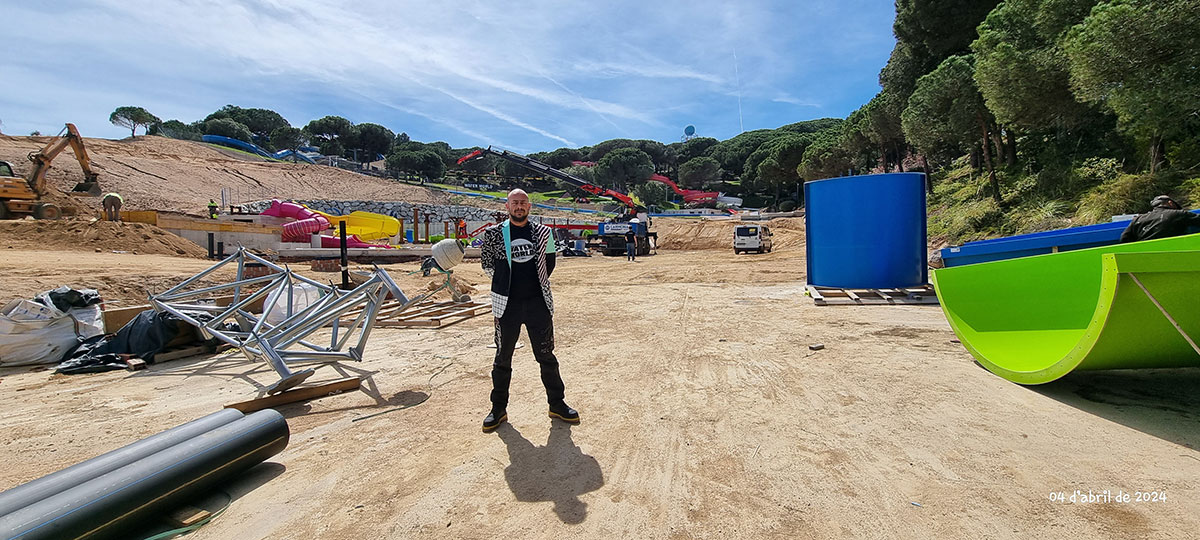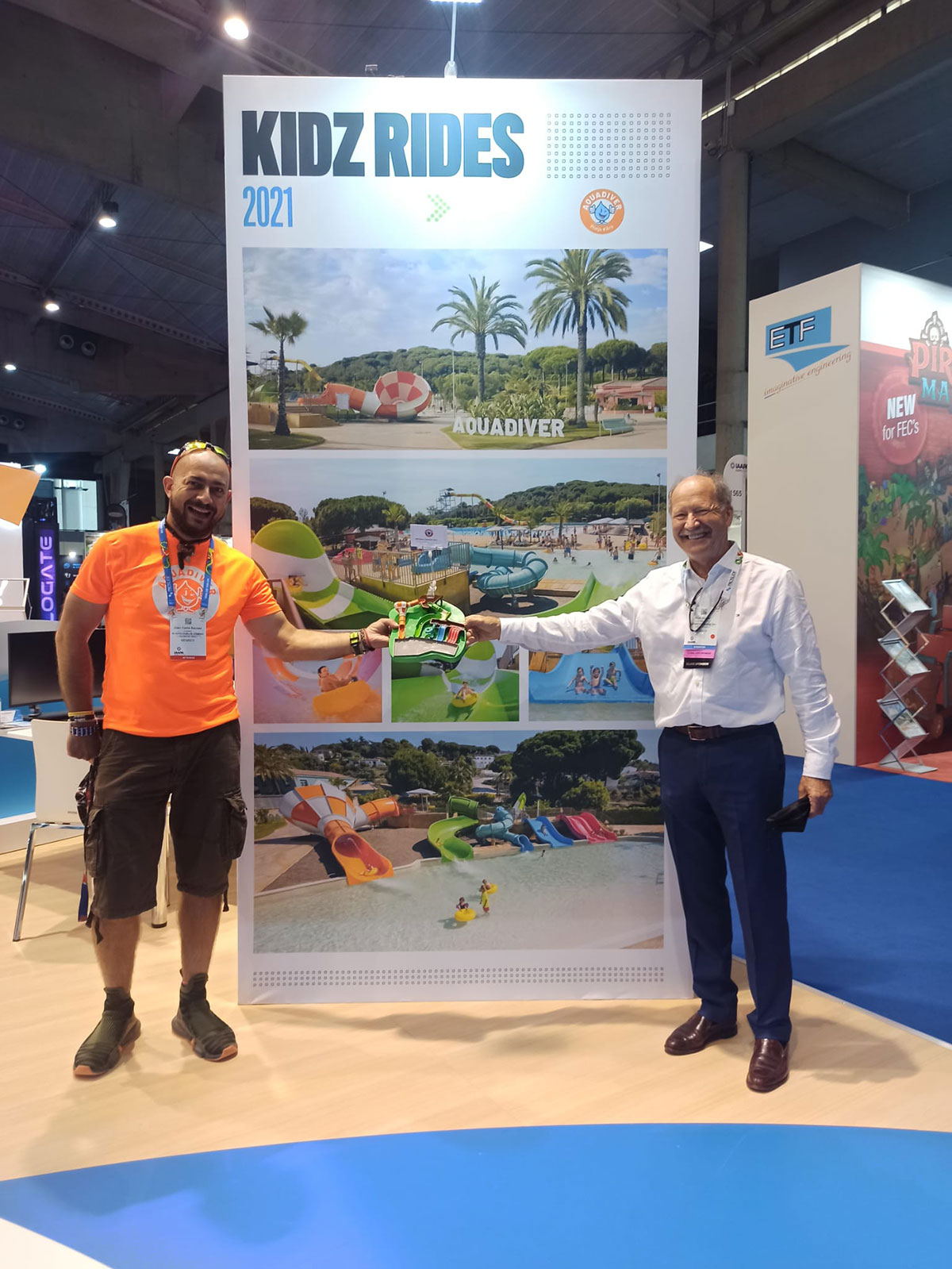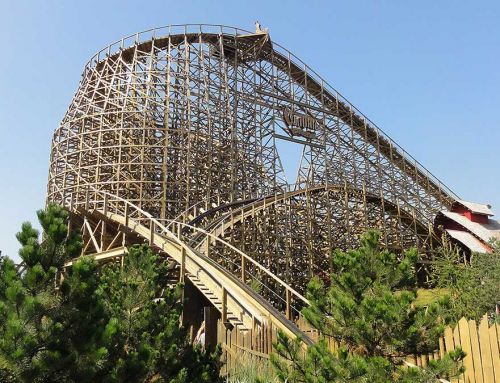The professional with whom we spoke on this occasion belongs to the second generation of a family of pioneers in the water park sector in Europe. He has witnessed many changes, advances and innovations since 1985, when he opened in Lloret de Mar, Catalonia, one of the first parks on the Iberian Peninsula, which is still known as Water World, followed by Aquadiver and Illa Fantasia. He tells us about the wealth of experience from when he took over immediately after starting his professional career. Enjoy!
Amusement Logic: You belong to the second generation of a family of pioneering water park operators in Catalonia, with the first one, Water World, opening in Lloret de Mar in 1985. How did you get started in the water park business?
Joan Cama: We could say that I was almost born on one of those “kamikaze” slides in the 1980s. From the age of 5 or 6, every weekend we went to see how Dad worked at Water World, so I could almost see what was going to happen in the future… At 16 I started working for two months in the summer, trying to see how the different areas, or types of work we had developed, at Aquadiver, the park in Playa de Aro, which was born in 1987, two years later than Water World. I worked in all departments, from serving ice cream or making hamburgers, to being one of the lifeguards.
I was studying business administration and management in 2002, and I remember it perfectly: I came home from university, went to see my father and said: “Dad, this university thing is not my thing”. And he said: “Shall I call Aquadiver tomorrow and you can start now?” And I said: “Of course, perfect”. And that’s how I started, with total exclusivity, in the day-to-day running of the family business and my father’s partner, Josep Tarré, who was in charge of it.
I began to learn about my father’s day-to-day life and work. He took care of external relations, our participation in different business organisations and, above all, knowledge of the sector on an international level.

A.L.: You now manage 3 water parks. Is the economy of scale beneficial or does it have triple the problems?
J.C.: Well, the truth is that, in my personal opinion, it doesn’t have three times as many problems, but rather three times the experience. In our case, there are three parks in different tourist areas: Aquadiver in Platja d’Aro, Water World in Lloret de Mar, and Illa Fantasia near Barcelona, so we experienced different situations in the three parks. This fact has helped us over the years, and helps us to manage resources well and to work more efficiently, because, obviously, there are things that are common to all the parks. On the other hand, and what I think is more important, you also learn to have the best team for the direct management of each park. One of the things I learned from my father is the overall vision, which I can apply to all 3 parks.
A.L.: How does the public you receive in each of your parks differ?
J.C.: The public has changed a lot in our areas. At the end of the day, everyone has the right to find their favourite water park. But, in general terms, if we talk about Water World and Aquadiver on the Costa Brava, at the beginning of the parks we could talk about 75% foreigners. Nowadays, more than 50% of the visitors are locals. Because the public has learned, because we have innovated and improved the parks, because there are times when people travel less abroad… There are several reasons for this. In the case of Illa Fantasia, being a “harder” park, as we usually say, more of a city park, we have achieved a balance between what the visitor is looking for and what we offer.
At the beginning it was more of an activity centre than a water park, with musical performances, discotheque, mechanical attractions, sports centre… and over the years the aquatic part grew until it became just a water park. Thanks to the changes in our management, to the understanding of the people, we can say that there are many visitors, in this case locals, who have adapted to the change and repeat. I can say that it is the only park I know of with such a large area to make your own barbecue, with all that that implies.
With our management and the knowledge of the tourist world provided by the management of the other two parks, the percentage began to grow to such an extent that, in the last 3 years (and those still to come), Illa Fantasia coexists with Horrorland in the same facilities, although at different times. And Horrorland is the best rated Scream Park in Europe.

A.L.: You have resisted the consolidation of the sector with the appearance of two large operators. How is the competition in the sector and how do you face it?
J.C.: I remember when my father went to the United States every year to see parks and fairs in the sector, and when he came back, he would show us the photos he had taken and explain things to us… and one day, with my sister, we said to him: “Why are there more photos of benches to sit on than of rides?” To which he replied: “Everyone should know the size of the park they have, in every sense… there will always be bigger parks with better rides, but we have what we have”.
We are in a sector in which innovation, difference, added value, is the most important thing. Each park has what it has and tries to be different in something from the one next door, and tries to complement the summer season with some other activity. That is one of the ways to be different and, at the same time, to make the facilities profitable.
A.L.: What are the main changes you have noticed over the years in the tourists who come to the Catalan coast? And has the resident public also changed?
J.C.: The main change in tourists and nationals who visit us is their greater knowledge of the sector. Therefore, both are more demanding. Years ago, both the tourist and the local visitor travelled more with their mind set on the hotel; now they think more about what they can do at the destination, about the activities.
A.L.: What are the main mistakes that are made at the beginning of the development of this type of leisure projects? How can we avoid them?
J.C.: Not knowing what the public wants can be one of the main mistakes; not knowing who you are targeting or what the public is looking for when they come to visit your area. In the early days of the industry, there were no slide suppliers. As the industry developed, many of the water slide manufacturers added water park design to their portfolio, with studies on attendance, feasibility, etc. So here we have a solution to the mistakes: if there is feeling, professional and personal trust and good understanding, why not have a professional company next to improve the development?
Another main problem is not getting innovations right. There is no reason why a new generation attraction should be more popular with the public than an old-fashioned attraction. Particularly at Water World, although we have 2 Master Blasters and we will have other new attractions in the future, my favourite slide is the Wild River from almost 40 years ago.
What I have learned personally is that you have to surround yourself internally with the best team you can and have the professionalism of a company that understands the business, as it offers more information of an international nature.

A.L.: Water World has become a benchmark in the sector with successive extensions and adaptations. Can’t you let your guard down in this sector?
J.C.: In the leisure sector it is very important to keep up to date with attractions, sales systems, cashless systems… all kinds of innovations. Just one example: at Water World, when I was not yet in the company, we worked with more than 500 tourist agencies; now there are some left, but no intermediaries or ticket sales platforms. The customer who visits us, both foreign and domestic, has already travelled, has already seen similar things… And they want more. In addition, the market also innovates, suppliers or partners have new things, technology in general also progresses… so you have to be up to date with everything.
For this reason, although the internal management of the business is important, so is the external management, knowing what is on the market, being known, the new regulations… and if you can also complement the aquatic season with other activities in the same facilities, that also helps the publicity of the area, not only of the business.
A.L.: When there is a drought, the media draw attention to swimming pools and water parks. Is that fair?
J.C.: A few years ago, we experienced a water crisis. I lived through it at Illa Fantasia and the truth is that I don’t think it’s fair or unfair. I think it is a problem of non-information. When they ask or talk about it and you say that a water park consumes less water than a 100-room hotel, people don’t understand what you are telling them. And when you tell them, then they change their minds.
That’s what we did at Illa Fantasia; we called the local television station, TV3, and we explained on the spot how we treated the water; how we passed it from pool to pool, cleaned it and returned it. The same year, we offered schools the opportunity for children to see the water process. I always explain the same thing: we fill the pools once a year and not 100%, and we consume the water that people take with them when they leave the pool, the water that evaporates and the water that, before being discarded, we use for cleaning filters and toilets.

A.L.: 2020 was a horrible year for the leisure and tourism sector because of the pandemic, but we have recovered well. Do you dare to give us your perspective for the future?
J.C.: It is a changing sector, it is a grateful sector in general as we get the visitor to have a good holiday, it is a sector that has become more professional over the years… but a pandemic or something similar no longer depends on people or their knowledge. From what we have experienced, I can say that the sector has recovered quite well, we have worked well together and perhaps, in complicated situations, complicated changes are needed or, let’s say, more extreme changes. This, in my opinion, is the beginning for the second generation in the business.
In this aspect, I remember in Illa Fantasia, when we approached our father and said: “We have the option of doing a music festival, day and night, for the LGTBQA+ audience”. At first you think, “That’s impossible! But with enthusiasm, initiative and a team of professionals on your side, and with a part of the risk that you take, we have been holding the biggest festival in a water park for 15 years now. And, as I was saying, Illa Fantasia has been sharing the same venue with Horrorland for 3 years. Another example: at Water World we have also been holding a bike race for 3 years with 600 participants, with a course that even goes through a slide.
All these changes are up to us, to the next generation, although I will always be grateful that my father, who is over 80 years old and almost 40 years in the sector, still comes to the parks every day and still lives them from the inside.
RELATED STORIES
Newsletter



